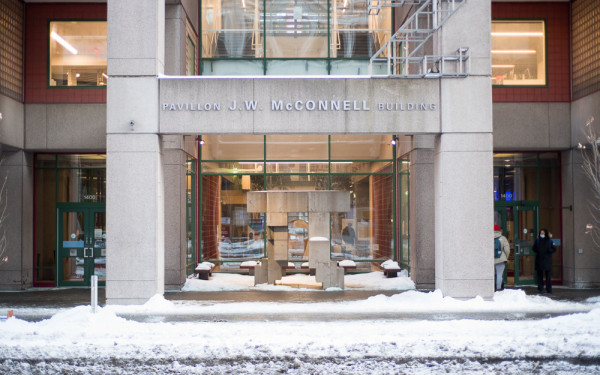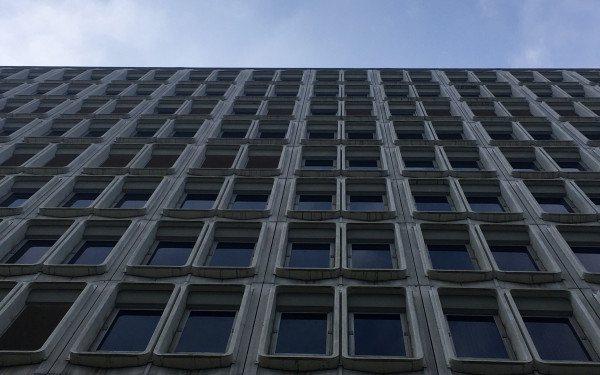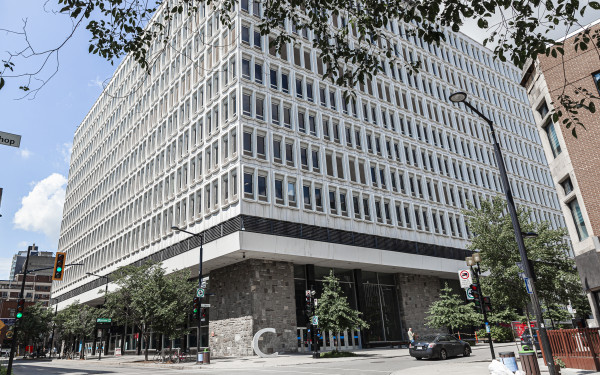Student Associations Call Out Concordia Administration for Complaints Against Strikers
University Joins Professors as Co-Complainants
The story about student strikers facing complaints from a handful of profs has taken an abrupt turn now that Concordia University has chosen to side with the professors.
It was mid-April when a group of students first received complaints for an April 1 picketing of a political science class. Since then, those students and more have seen the grievances against them supported by the university.
It’s estimated that two dozen students are charged with obstructing the classrooms of three professors while striking. The charges specify that peaceful protests and strikes aren’t considered to be obstructions as long as they don’t disrupt classrooms—which strikers argue is contradictory.
The Link reached out to the university in April when the No Tribunals for Students campaign began. The campaign demanded that the university take a stance against the complaints and the expulsions that might result from them if students are found guilty.
At the time, the university’s spokesperson, Chris Mota, said these processes happened outside of the administration’s influence.
Since, things have changed.
“When we spoke last month, the complaints had been filed only by professors,” Mota responded in an email. “What has happened since then, is that the professors requested assistance from the university, and a decision was made to provide support by becoming co-complainants.
“So there is no contradiction. The situation has evolved since we last spoke.”
“We have to defend our right to strike,” said outgoing Concordia Student Union President Benjamin Prunty, one of several student politicians that released an open letter yesterday.
“The university is clearly making a choice to disregard commitments made to representative bodies and disregard their positions,” said Prunty. Pickets and classroom disruptions were voted on at general assemblies held by departmental student associations.
The open letter was signed by leaders of the CSU, the Graduate Students’ Association, the Arts and Science Federation of Associations, the Fine Arts Student Alliance and the Students of Philosophy Association.
The university is making a political statement by choosing to side with these professors, says Prunty, and he and other student politicians are calling these complaints a criminalization of student strikes.
“The university only got involved when the request for assistance was made by the professors.” — Chris Mota, Concordia University spokesperson.
A number of student associations voted to strike on April 1 and 2, including political science undergrads.
Full-time and part-time professors’ unions, along with the teaching and research assistants’ union stated their support for the strikers, while advising professors and teachers to not cross picket lines.
The university even held a day of reflection on April 2 to acknowledge the strikes.
The grievances reference article 29G for the “obstruction or disruption of University activities” in Concordia’s Code of Rights and Responsibilities.
Following the 2012 strikes, Concordia administration sent complaints to 26 students, which were withdrawn when Alan Shepard became Concordia’s President.
Mota could not answer why at least three students, including one editor from The Link, received complaints for events they were not involved in. She said these students should seek assistance from the Office of Rights and Responsibilities.
On the question of Concordia Security’s involvement during the strikes (security is acting as representatives for the university in these cases), Mota says security followed standard procedures.
“There were no special instructions from the senior administration,” she said.
Prunty says it’s unclear whether the university will reverse the decision to back the complaints.
“But regardless our opinion needs to be stated publicly about this,” he said.

_900_419.png)


_600_375_90_s_c1.jpg)


